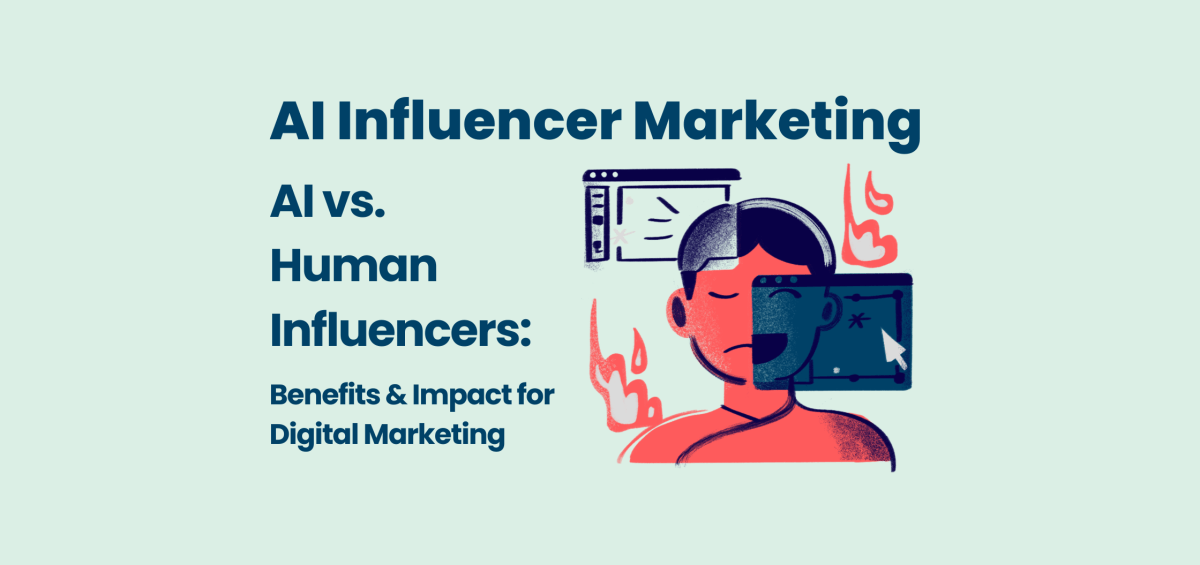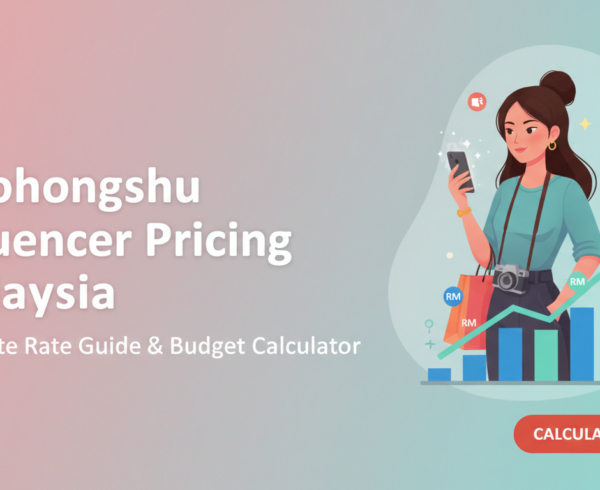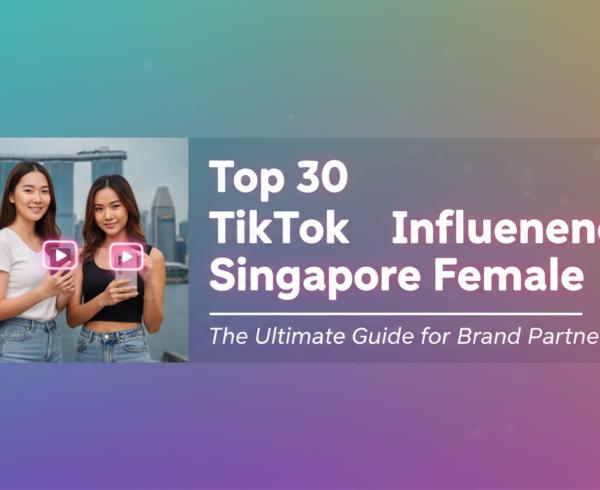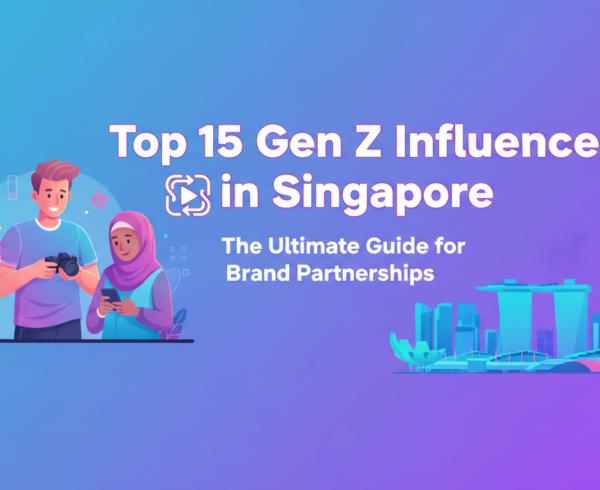Can AI Really Replace the Human Touch? Weighing the Benefits and Impact of AI vs. Human Influencers for Your Marketing Strategy
The rise of AI influencers has sparked a significant debate in the digital marketing world: can these virtual entities truly rival the impact and effectiveness of human influencers? For digital marketers, understanding the nuances of this comparison and the specific benefits that AI brings to the table is crucial for making informed strategic decisions. Let’s delve into the advantages of AI in influencer marketing and explore how they stack up against the irreplaceable human element:
1. The Efficiency Edge: Can AI Outperform Humans in Marketing Task Execution?
One of the most compelling arguments for embracing AI in influencer marketing lies in its potential to significantly boost efficiency. AI influencers can automate a range of tasks that traditionally require considerable time and effort from both brands and human influencers. From generating consistent content based on pre-defined parameters to scheduling posts across multiple platforms and even engaging with audiences through AI-powered chatbots, virtual influencers can streamline campaign workflows, freeing up human marketers to focus on strategic planning and higher-level creative initiatives. This efficiency gain can translate to faster campaign execution and a greater output of marketing materials.
2. Decoding the Data Deluge: Unlocking Deeper Audience Insights with AI Analytics:
In today’s data-driven marketing landscape, the ability to gather and analyze information is paramount. AI influencers excel in this domain. Every interaction, every content view, and every audience response is meticulously tracked and recorded. Advanced AI analytics can then process this vast amount of data to provide digital marketers with granular insights into audience demographics, content preferences, engagement patterns, and campaign performance with a level of precision often difficult to achieve with human influencers. This data-driven approach enables marketers to make more informed decisions, optimize their strategies in real-time, and demonstrate a clear return on investment.
3. The Power of Total Command: Ensuring Unwavering Brand Control and Consistency:
Brand consistency is a cornerstone of effective marketing, and AI influencers offer an unprecedented level of control in this regard. Digital marketers can dictate every aspect of their virtual ambassador’s persona, messaging, and visual identity, ensuring perfect alignment with brand guidelines and marketing objectives. Unlike human influencers who may occasionally deviate from the script or face unforeseen personal controversies, AI influencers provide a stable and predictable platform for brand representation, minimizing the risk of brand safety issues and ensuring a consistent brand experience across all touchpoints.
4. The Irreplaceable Human Connection: Authenticity, Emotion, and Lived Experiences:
While AI offers undeniable advantages in efficiency, data, and control, it’s crucial for digital marketers to acknowledge the irreplaceable value of human connection. Human influencers build their audiences on authenticity, relatability, and the sharing of genuine lived experiences. Their ability to evoke emotion, build trust through personal stories, and foster a sense of community remains a powerful driver of consumer behavior. This human element, often characterized by vulnerability and spontaneity, is something that AI, in its current form, cannot fully replicate. As the Deloitte report mentions, content creators often help brands penetrate deeper into niche communities and bridge a more personal connection with their audience.
5. Cost-Effectiveness vs. Credibility: Finding the Right Balance for Your Brand:
The cost-effectiveness of AI influencers can be a significant draw, particularly for brands with budget constraints. However, digital marketers must carefully weigh these cost benefits against the established credibility and trust that many human influencers have built with their audiences. While AI influencers can be a more budget-friendly option for certain campaigns, the perceived authenticity and endorsement power of a respected human influencer might yield a higher return in terms of brand trust and long-term customer loyalty. The Northeastern University research highlights the potential risk to brand trust if consumers are unhappy with a product marketed by an AI influencer.
6. Scalability and Availability: Meeting the Demands of Large-Scale, Global Campaigns:
For digital marketers managing extensive or global campaigns, the scalability and 24/7 availability of AI influencers offer a significant advantage. Virtual influencers can seamlessly participate in campaigns across multiple regions and time zones without the logistical complexities associated with coordinating numerous human influencers. This scalability allows brands to maintain a consistent global presence and engage with audiences around the clock, maximizing reach and impact.
7. Navigating the Ethical Minefield: Transparency, Disclosure, and Consumer Trust:
The use of AI influencers raises important ethical considerations that digital marketers must address proactively. Transparency is paramount. Consumers need to be aware when they are interacting with a virtual entity rather than a human. Failure to disclose the AI nature of an influencer can erode trust and lead to negative brand perceptions. As the research from Northeastern University suggests, there might be a need for tighter control and greater transparency regarding AI influencers, similar to regulations around advertising disclosures by human influencers.
8. The Power of Synergy: Combining the Strengths of Both Worlds for Optimal Impact:
The most effective influencer marketing strategies in the future are likely to involve a synergistic approach that leverages the unique strengths of both AI and human influencers. Digital marketers can strategically deploy AI influencers for tasks requiring efficiency, data analysis, and consistent brand messaging, while simultaneously partnering with human influencers for their authenticity, emotional connection, and ability to reach specific niche communities with genuine impact.
9. Exploring New Creative Frontiers in Virtual and Augmented Reality:
AI influencers are not limited to traditional social media platforms. They are perfectly positioned to thrive in emerging digital spaces like the metaverse, virtual reality (VR), and augmented reality (AR). Digital marketers can leverage these virtual ambassadors to create immersive brand experiences, interactive product demonstrations, and personalized engagements within these evolving digital environments, opening up exciting new avenues for creative storytelling and audience interaction.
10. The Future Outlook: The Co-evolution of AI and Human Influence in Marketing:
The future of influencer marketing will likely be characterized by the co-evolution of AI and human influence. As AI technology continues to advance, virtual influencers will become even more sophisticated and seamlessly integrated into the marketing mix. However, the fundamental human desire for authentic connection and relatable experiences will ensure that human influencers continue to play a vital role. Digital marketers who understand how to strategically leverage both types of influencers will be best positioned to succeed in this dynamic and evolving landscape.
In conclusion, while AI offers compelling benefits in terms of efficiency, data analysis, and brand control, the human touch remains an irreplaceable element in building authentic connections and driving emotional resonance. For digital marketers, the key lies in understanding the unique strengths and limitations of both AI and human influencers and strategically integrating them into a comprehensive marketing strategy to achieve optimal results in an increasingly digital world.





